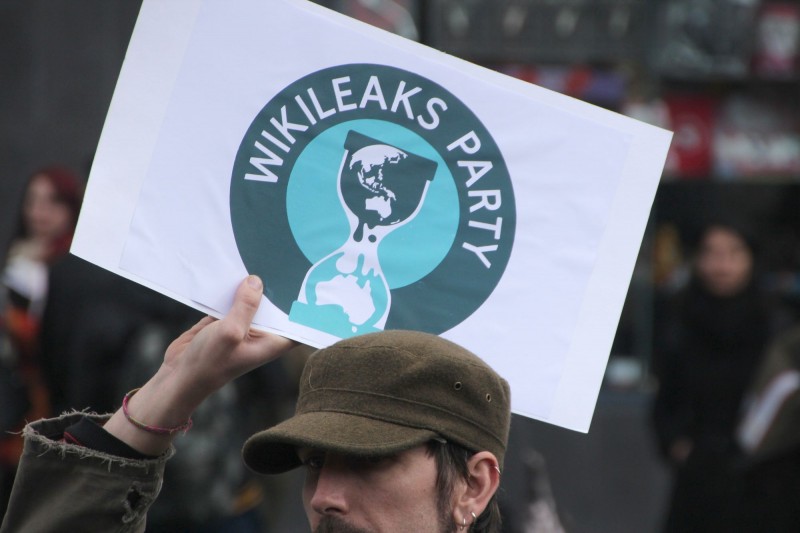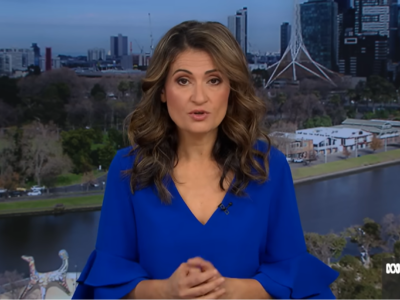Many WikiLeaks supporters were caught unawares when members of the Wikileaks Party met with Syrian President Bashar al-Assad in late December.
The small Australian delegation to Syria included party chairman John Shipton, father of party founder Julian Assange, along with representatives from the Sydney-based lobby group, Hands off Syria. Journalist Chris Ray, who was in the room for the 45-minute meeting, reported that the two groups “reject foreign military support for Syrian rebels and advocate a political solution to the crisis.”
The WikiLeaks platform was quick to distance itself from the initiative on Twitter.
@WikiLeaksSForum @WikiLeaksParty Peace brokering a good idea, but obvious meeting would be spun without care. Did not know or approve.
— WikiLeaks (@wikileaks) December 31, 2013
Major Australian political parties have condemned the meeting. In a somewhat curious response, Shipton threatened to sue Australian Prime Minister Tony Abbott and Foreign Minister Julie Bishop for defamation, over critiques they made to national press concerning the Syria visit. The Australian Broadcasting Corporation reported Bishop as saying,
It's an extraordinarily reckless thing for an organisation registered as a political party in Australia to try and insert itself in the appalling conflict in Syria for their own political ends.
When news of the meeting first hit the Internet, it became clear that many supporters of the WikiLeaks transparency platform knew little about the party to begin with. The WikiLeaks party, although institutionally separate from the platform, was created in 2013 to support Julian Assange's candidacy for the Australian Senate. In the September Federal elections, Assange led a group of New South Wales Senate candidates, with a number of Wikileaks Party members standing in other states. Assange and his party endured a dismal electoral failure, gaining less than 1.0% of the Senate vote.
During the campaign, with its figurehead still stuck in the Ecuadorian embassy in London, the party suffered from broad cleavages among members. One candidate and other party members resigned over allocation of voting preferences to right-wing parties. Australian technology website Delimiter commented in August:
Is the party purely a vehicle for WikiLeaks founder Julian Assange to get elected to the Federal Senate, and thus earn himself a ticket out of the Ecuadorian Embassy in London? Or is it a legitimate new political movement in Australia, which will achieve legitimacy beyond Assange personally?
Perhaps the journey to Syria was an attempt to broaden the party’s political profile. According to the latest Wikipedia entry for the Wikileaks Party:
Shipton subsequently stated that the meeting with al-Assad was “just a matter of good manners”, and that the delegation had also met with members of the Syrian opposition.
Despite John Shipton and Wikipedia indicating that the delegation also met with the Syrian opposition, details have not become available yet. Accompanying journalist Chris Ray did not mention the meetings in his post. Responding to WikiLeaks initial tweet, Wikileaks Party National Council Kellie Tranter tweeted that she too had no prior knowledge of the meeting.
This brought more questions about the party’s future:
@KellieTranter Does your membership of @wikileaksparty & candidacy for election on their behalf remain solid after Syria trip? @wikileaks
— Richard Crowden (@ScaredyCat44) January 6, 2014
Well-known commentator on the Middle East, Antony Loewenstein, showed his disappointment in the party, which he has given his support:
Wikileaks Party meets Syria's Assad and ignores reality of country: It's the first day of 2014 and… http://t.co/haXOaSTCNN
— Antony Loewenstein (@antloewenstein) January 1, 2014
The tweet and accompanying link brought several contrary views. Loewenstein further explained his concerns on his blog:
As a Wikileaks supporter since 2006, right from the beginning (and I remain a public backer of the organisation), it’s tragic to see the Wikileaks Party in Australia, after a disastrous 2013 election campaign, descend into political grandstanding.
The Wikileaks Support Forum has been a centre of debate. Journalist Jess Hill was especially active in taking the party to task. The conversation became heated:
@jessradio A one-sided anti-Assad view = misrepresentation of a complex situation involving many violent factions @wikileaks @WikiLeaksParty
— WikiLeaks_Supp_Forum (@WikiLeaksSForum) December 31, 2013
@WikiLeaksSForum @wikileaks @WikiLeaksParty That aside, Assad targets hospitals & schools, tortures/detains en masse. Denying that is absurd
— Jess Hill (@jessradio) December 31, 2013
This tweet should act as a warning to all in the twitterverse:
@WikiLeaksSForum @wikileaks @WikiLeaksParty If you think you can assess someone's viewpoint from a few tweets, you're simplistic.
— Jess Hill (@jessradio) December 31, 2013
Doubtless, Shipton and other delegation members will face many questions when they return to Australia.





1 comment